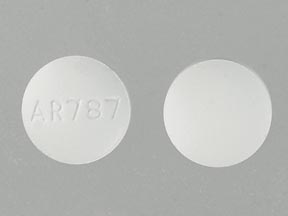
Fibricor Coupons & Savings Card – Discount Prices from $50.93
Brand for: Fenofibric acid
My prescription
Edit
35MG, Fenofibric Acid (30 Tablets)
Select pharmacy

CVS
$50.93
COUPON PRICE
Walmart
$288.15
COUPON PRICE
Walgreens
$299.14
COUPON PRICE
Albertsons
$308.91
COUPON PRICEFibricor savings card
Show this card to your pharmacist
CVS
$50.93
BIN
ID
PCN
GRP
019876
LH050A3328
CHIPPO
LHX
Powered by
Related fibrates prescriptions
More prescriptions for high triglycerides
Related fibrates prescriptions
More prescriptions for high triglycerides
Price history for Fibricor (brand) & Fenofibric Acid (generic)
30 Tablets, 35MG
Average retail price for Fibricor
Average retail price for Fenofibric Acid
Average SaveHealth price for Fenofibric Acid
Our price history data is based on aggregated prescription data collected from participating pharmacies in America. Our prescription data updates daily to reflect the latest price changes. If you notice a missing data point, it means there wasn't sufficient data available to generate a monetary value for that date.
Over the last 12 months, the average discount price of Fibricor is $267.75 using the SaveHealth savings card. That's an average savings of 77.35% on Fibricor with our discount card.
*Retail prices are based on pharmacy claims data, and may not be accurate when we don't have enough claims.
Fibricor (Fenofibric Acid) dosage forms
Dosage Quantity Price from Per unit 35MG 30 Tablets $50.93 $1.70 105MG 30 Tablets $74.39 $2.48
| Dosage | Quantity | Price from | Per unit |
|---|---|---|---|
| 35MG | 30 Tablets | $50.93 | $1.70 |
| 105MG | 30 Tablets | $74.39 | $2.48 |
What is the use of FIBRICOR tablet?
Fibricor tablets are used to help lower high cholesterol and triglyceride levels in the blood. They are often prescribed to patients who have not been able to control their lipid levels through diet and exercise alone.
What is the action of FIBRICOR?
Fibricor (fenofibric acid) primarily works by activating peroxisome proliferator-activated receptor alpha (PPAR-alpha). This action leads to an increase in the oxidation of fatty acids and a reduction in the production of triglycerides in the liver. As a result, it helps to lower triglyceride levels and can also increase high-density lipoprotein (HDL) cholesterol levels in the blood.
Using the SaveHealth discount card, what is the price of Fibricor without insurance?
Using the SaveHealth discount card, the price of Fibricor without insurance is $50.93.
What is the price of Fibricor at CVS?
The price of Fibricor at CVS is $50.93.
What is the price of Fibricor at Walgreens?
The price of Fibricor at Walgreens is $299.14.
What is the price of Fibricor at Walmart?
The price of Fibricor at Walmart is $288.15.
